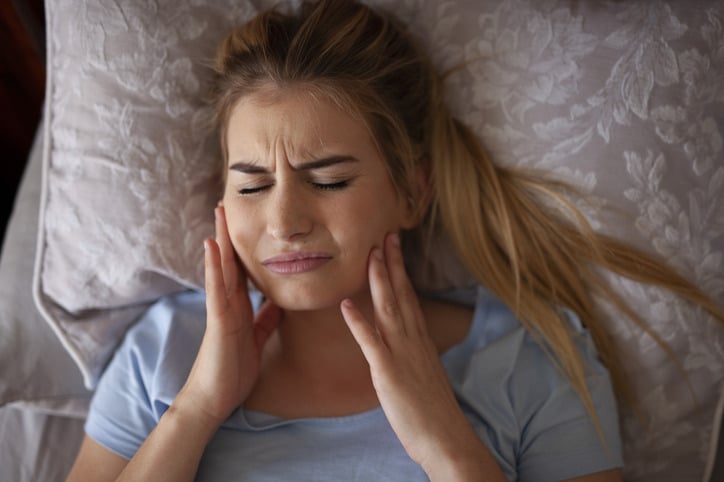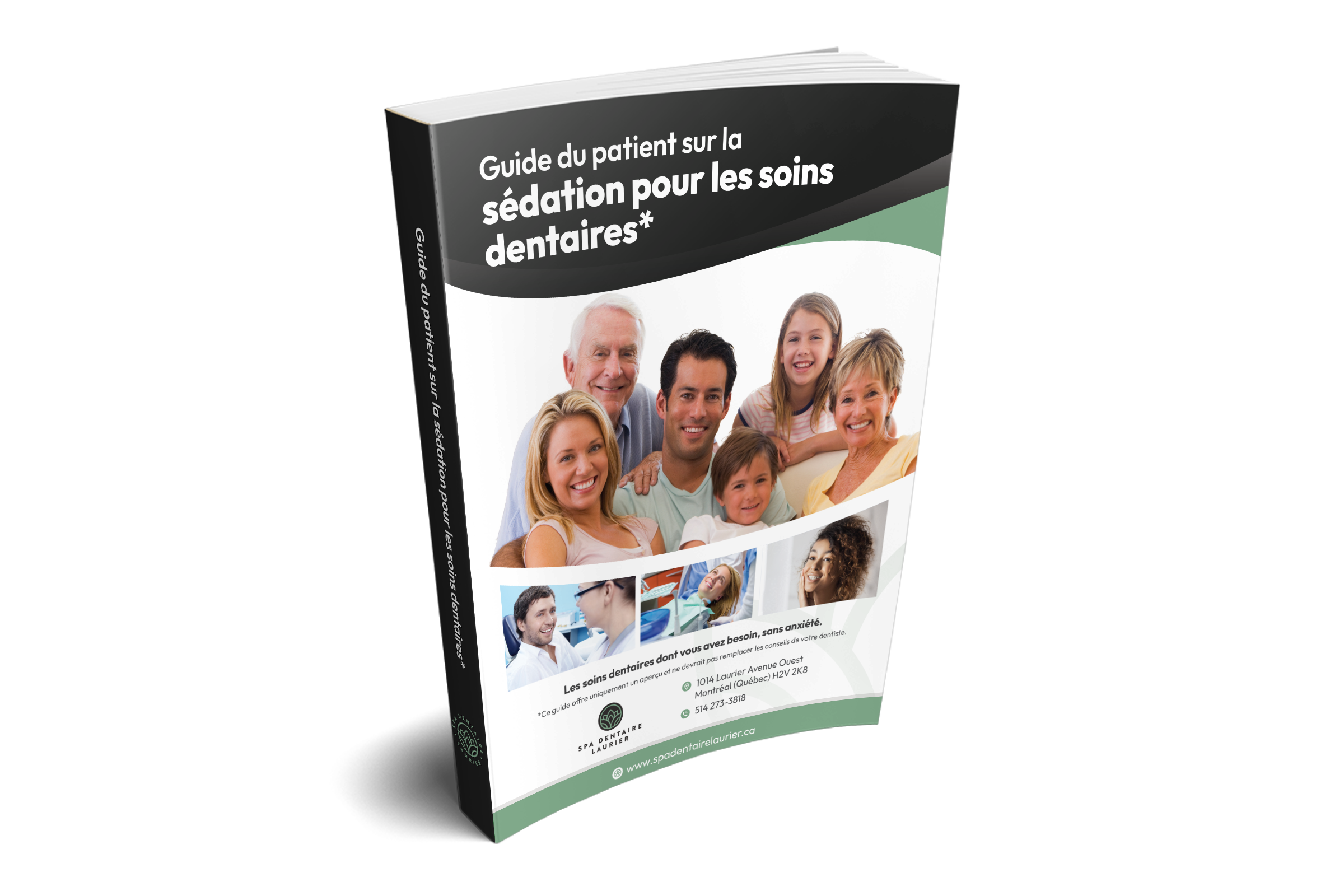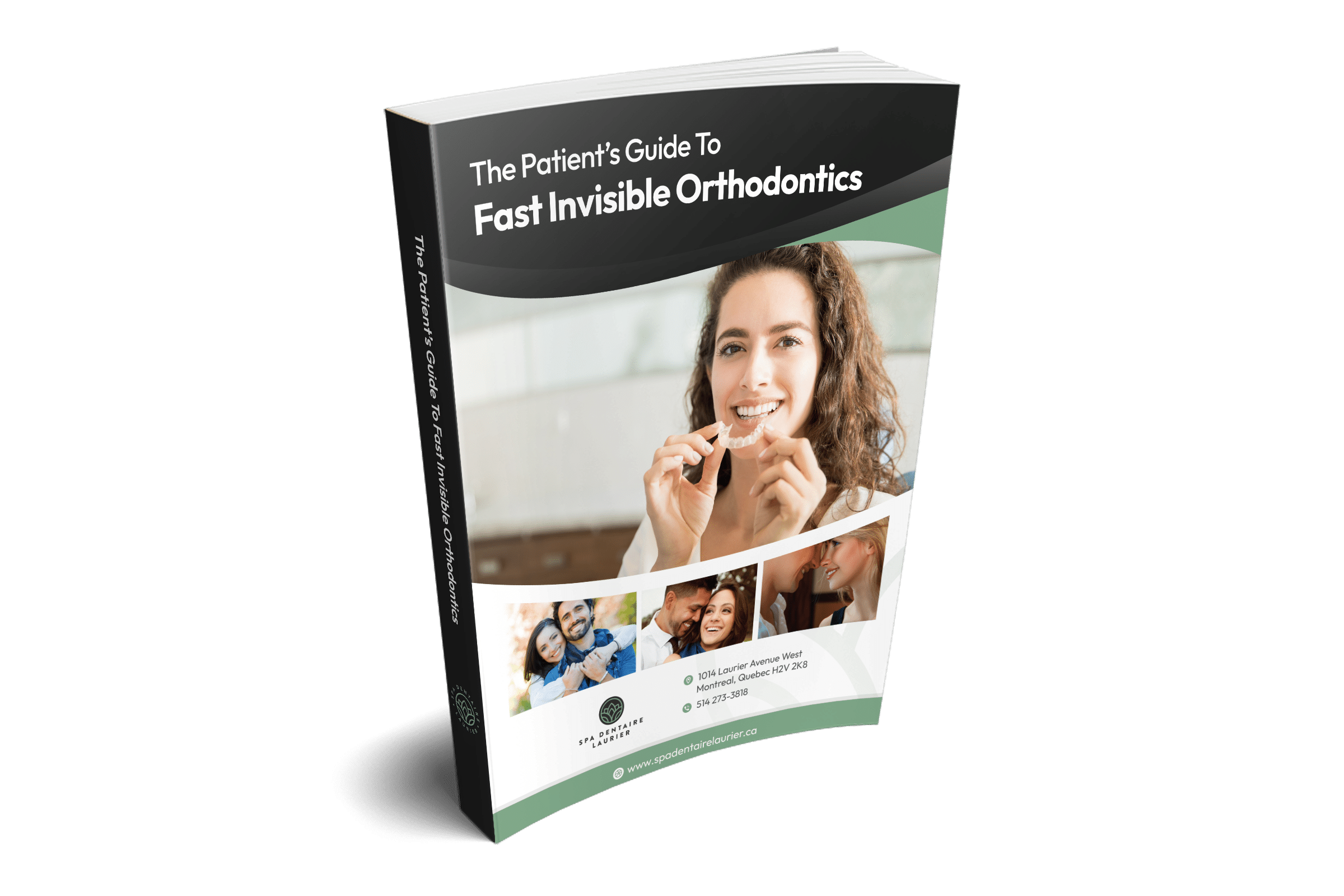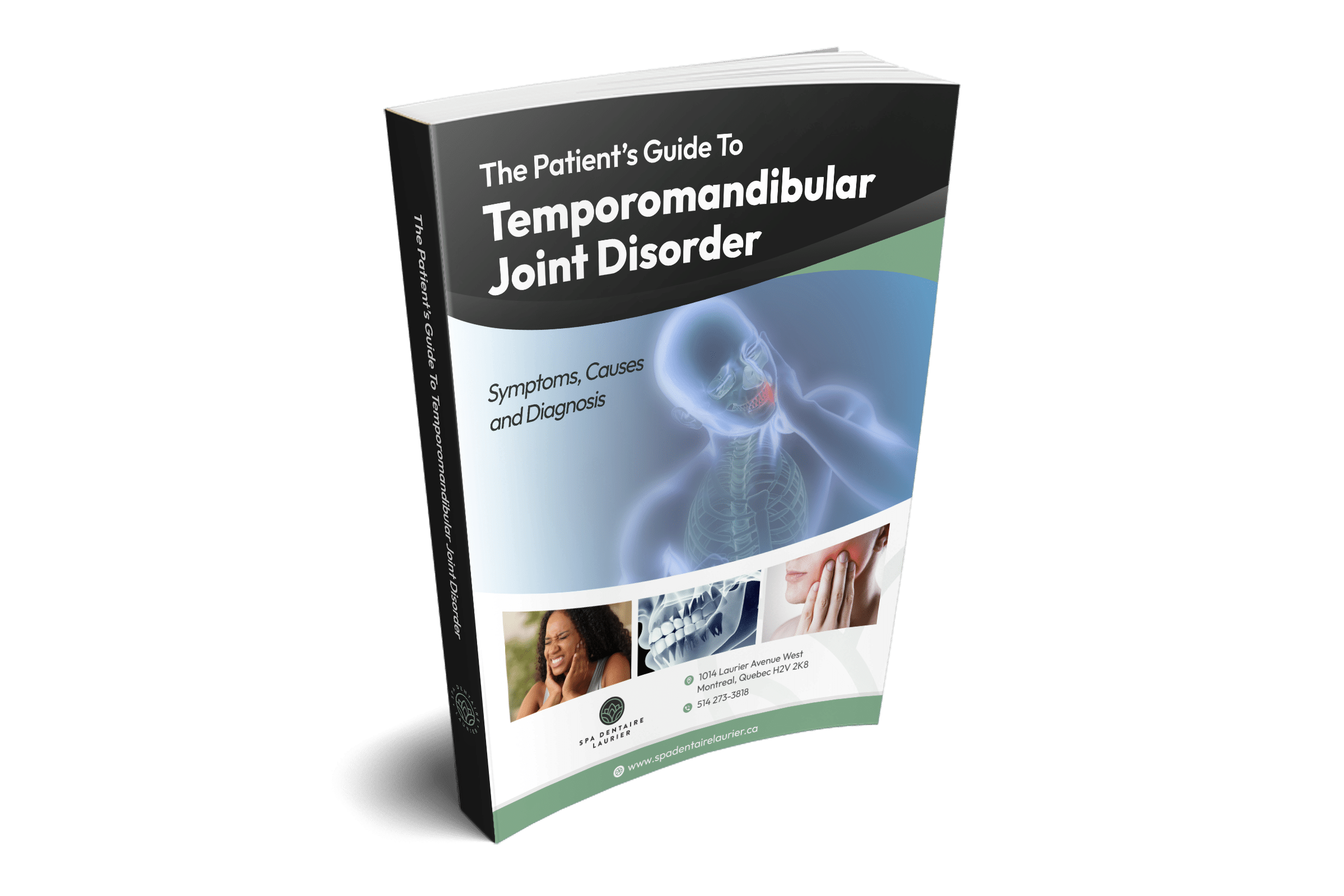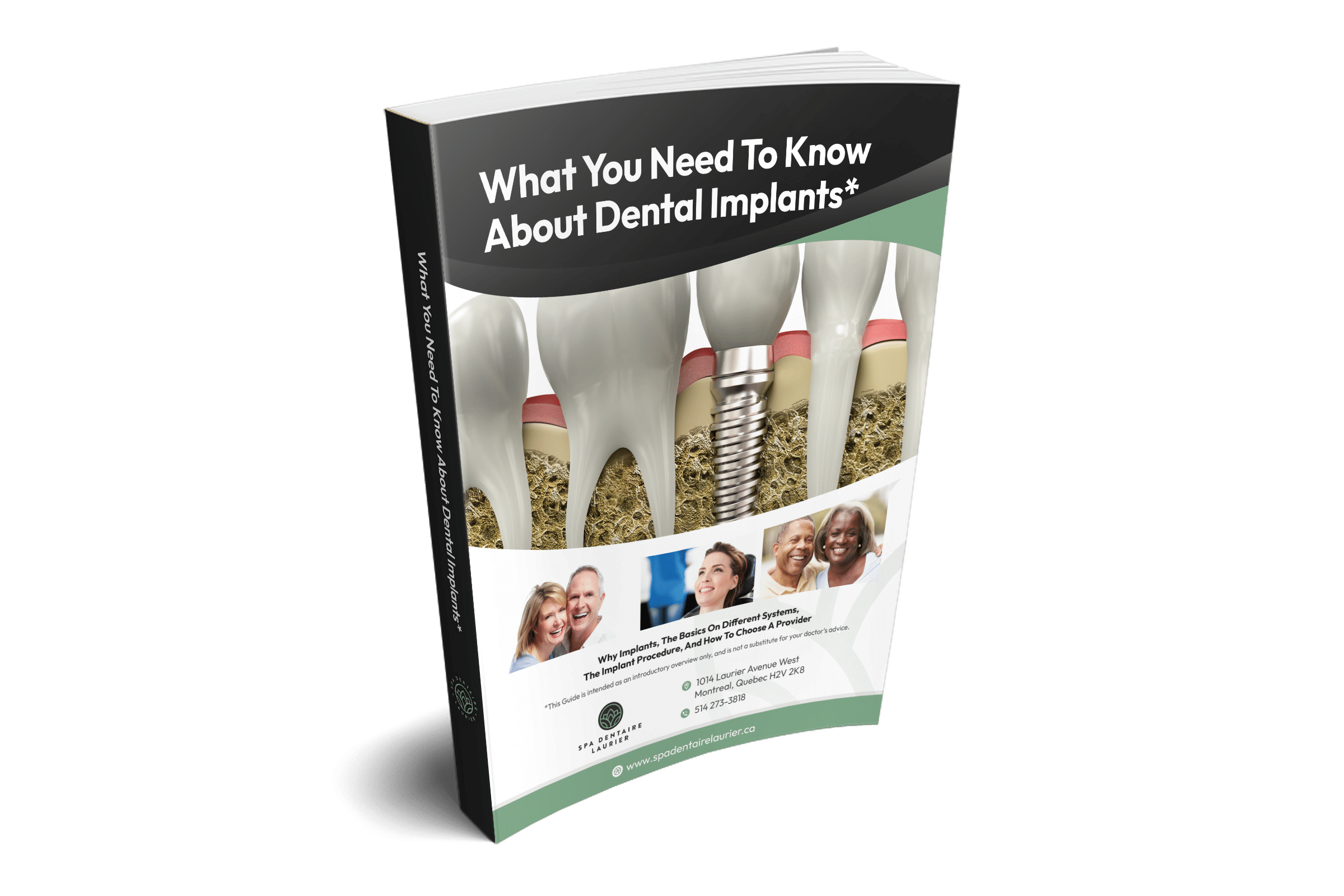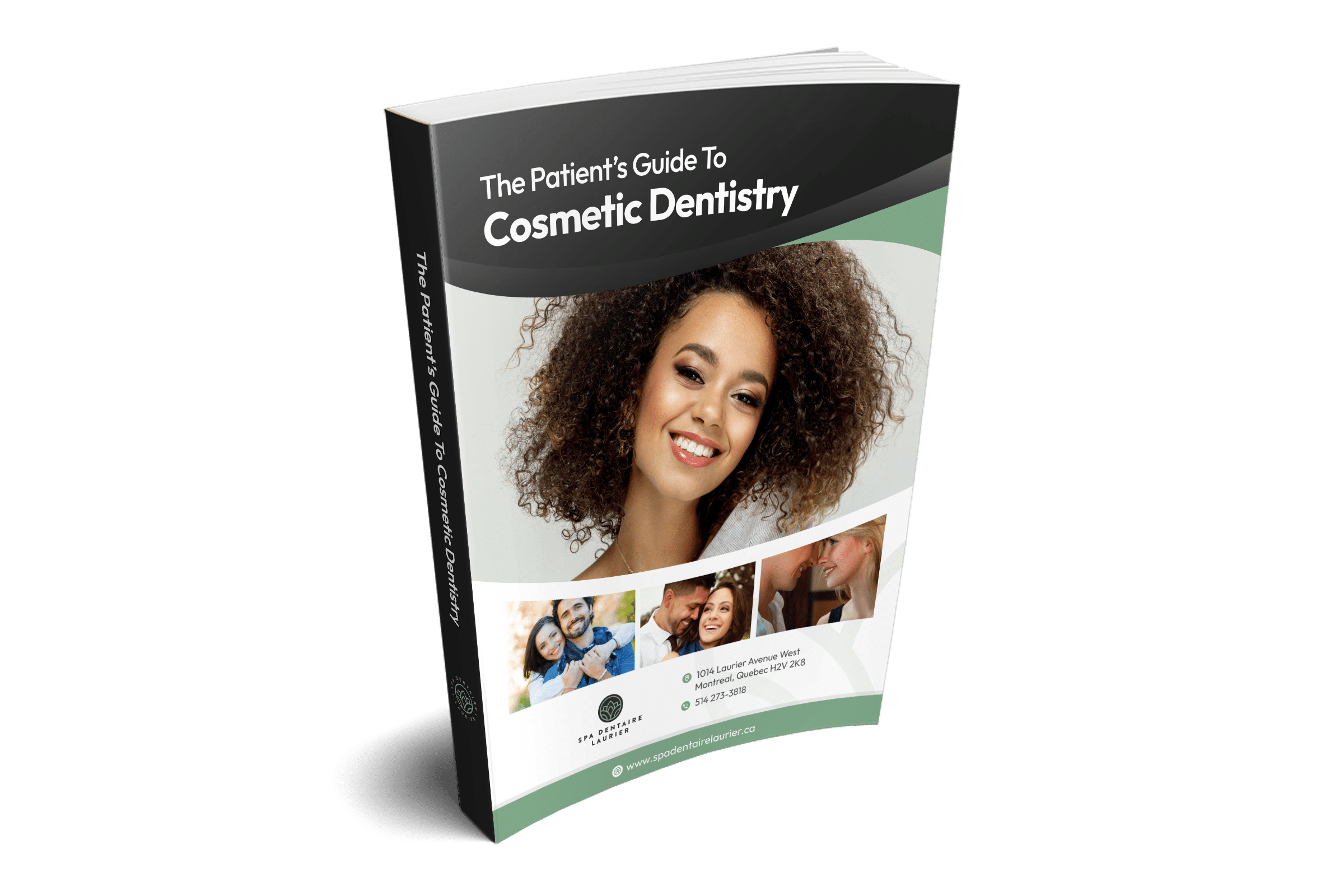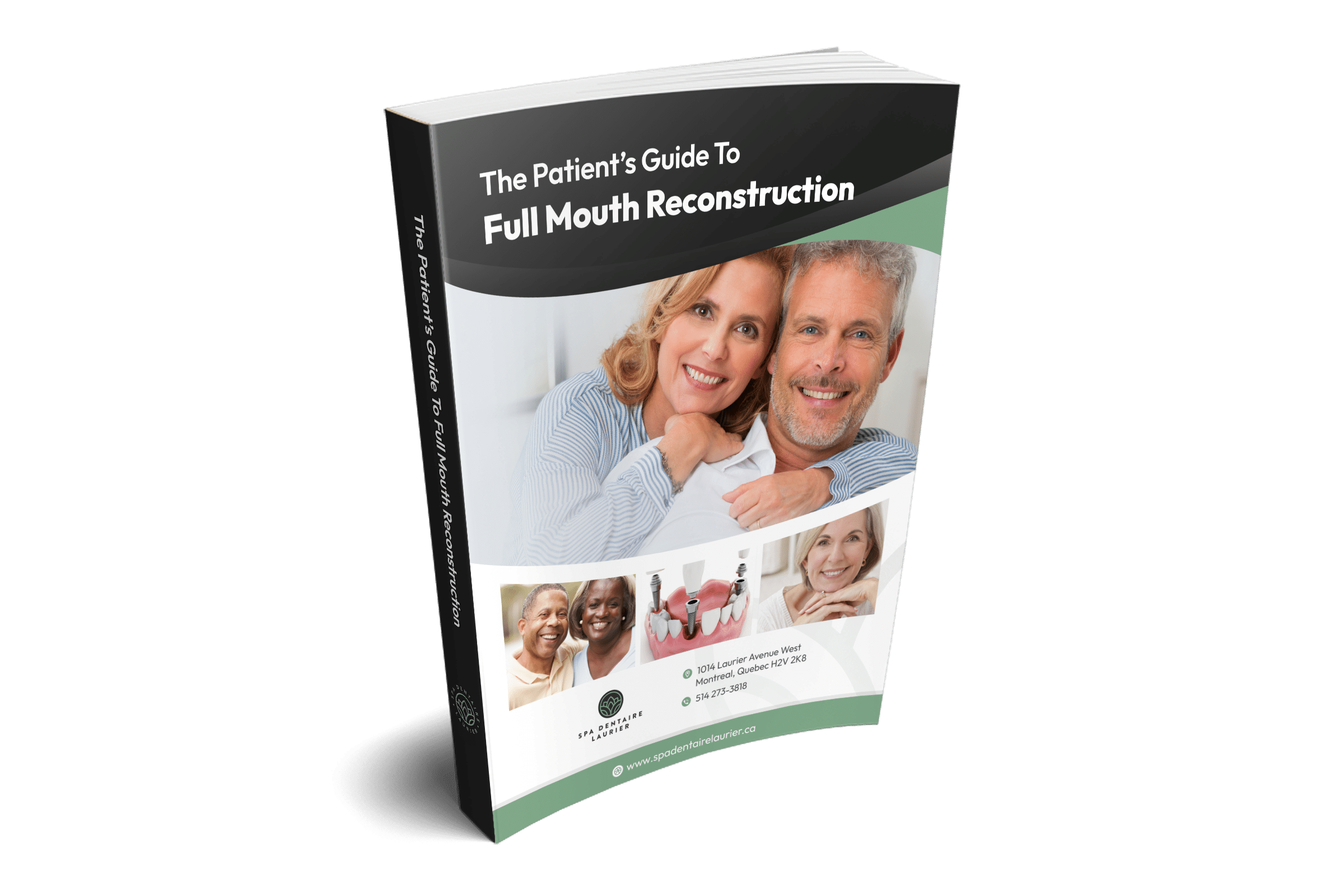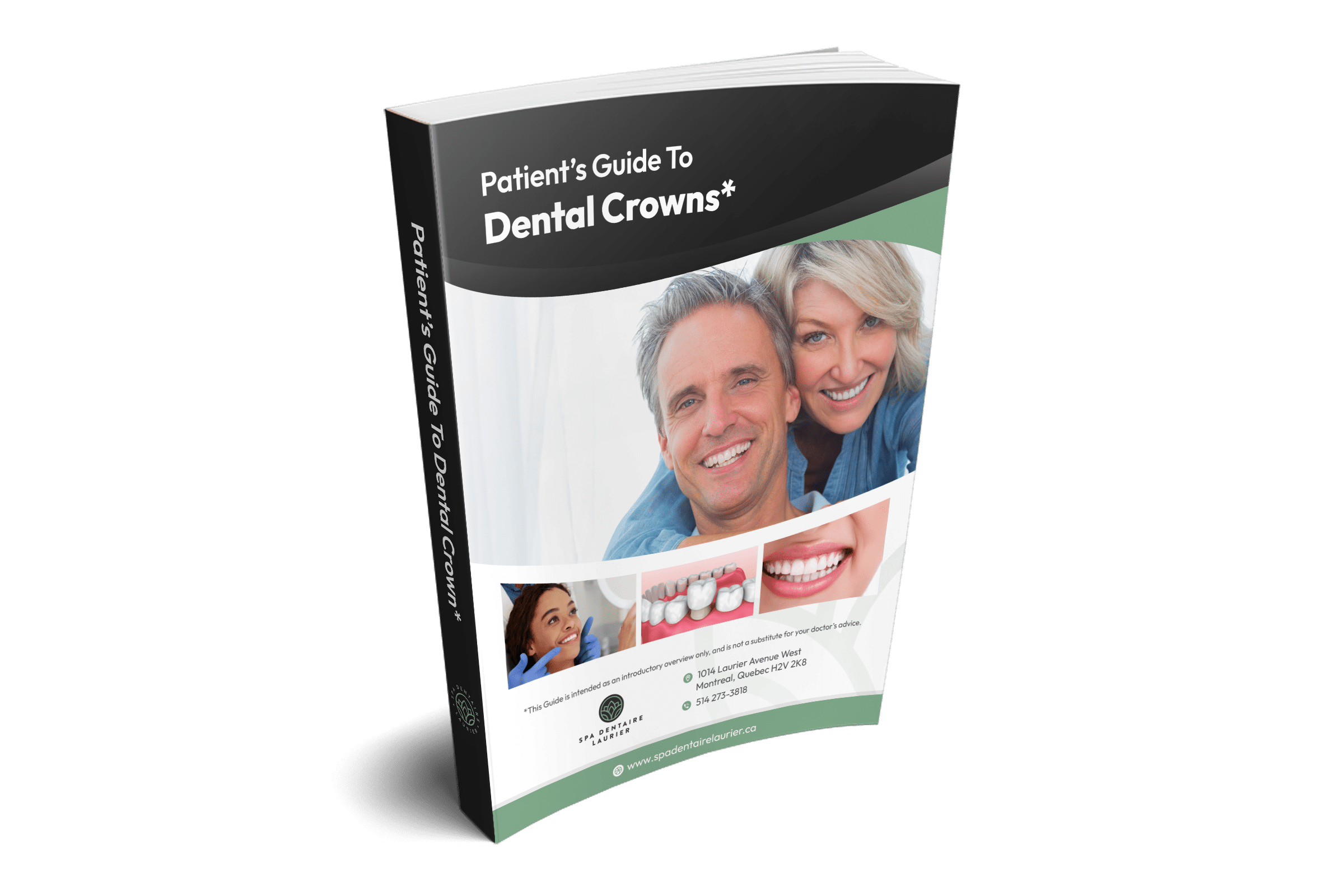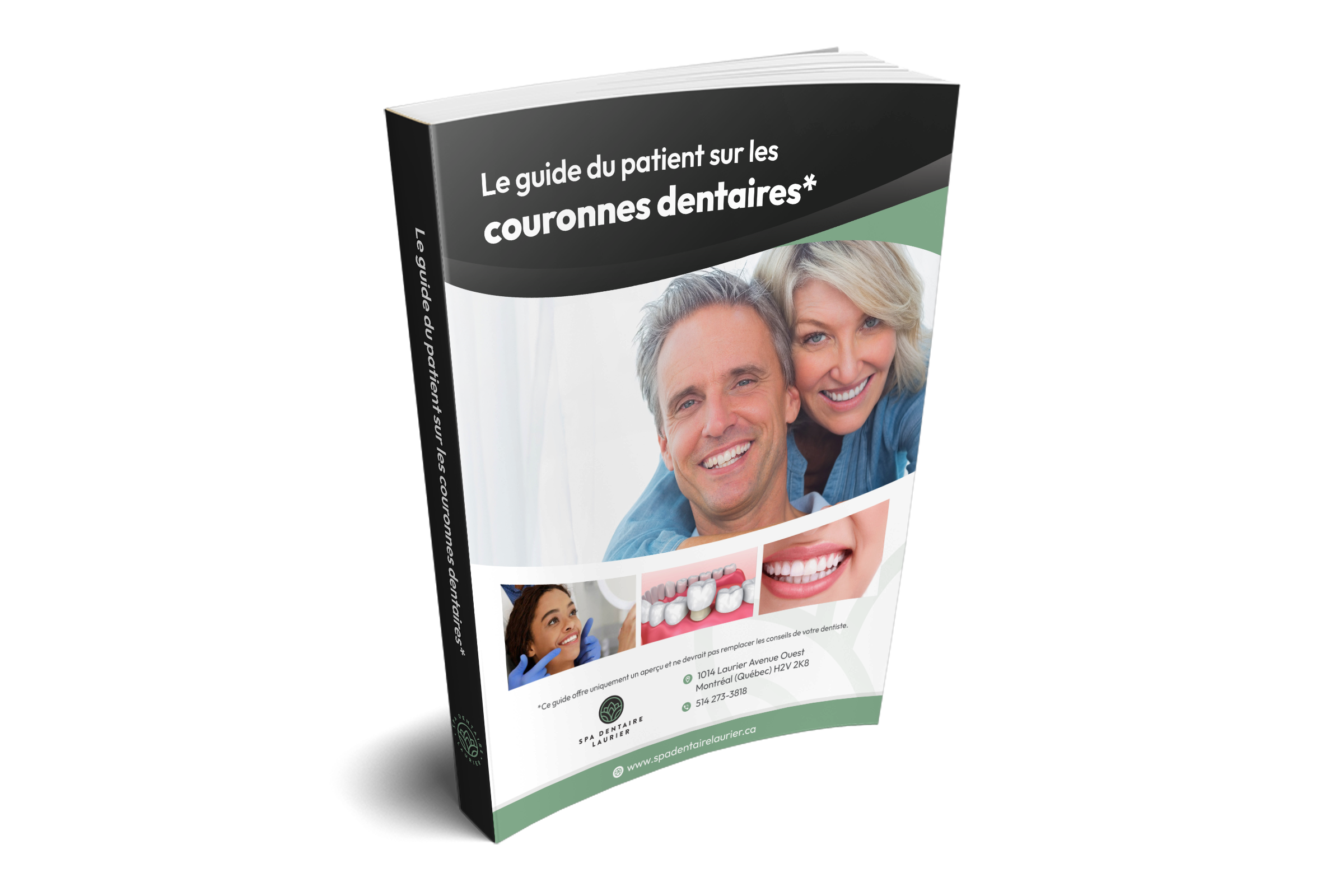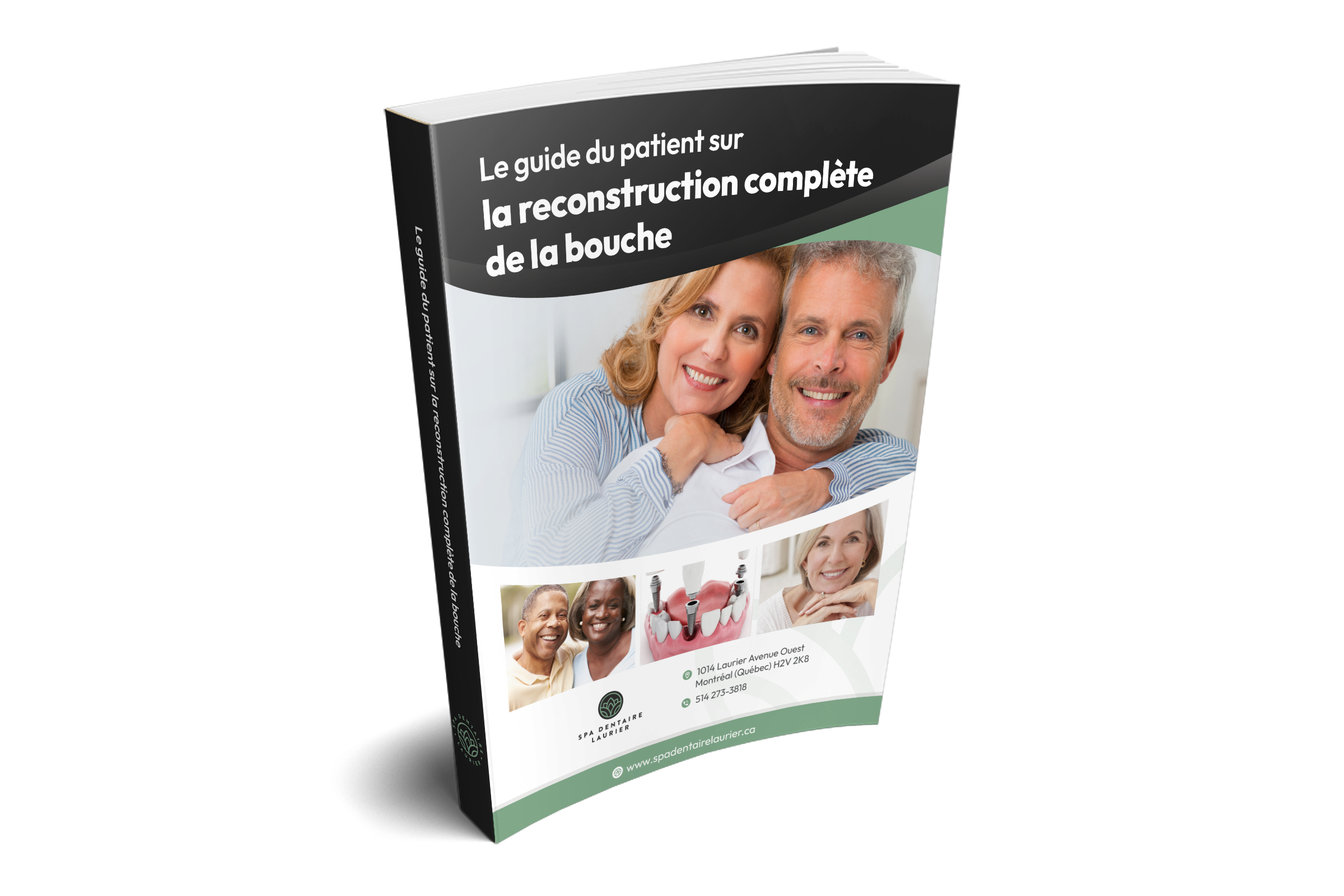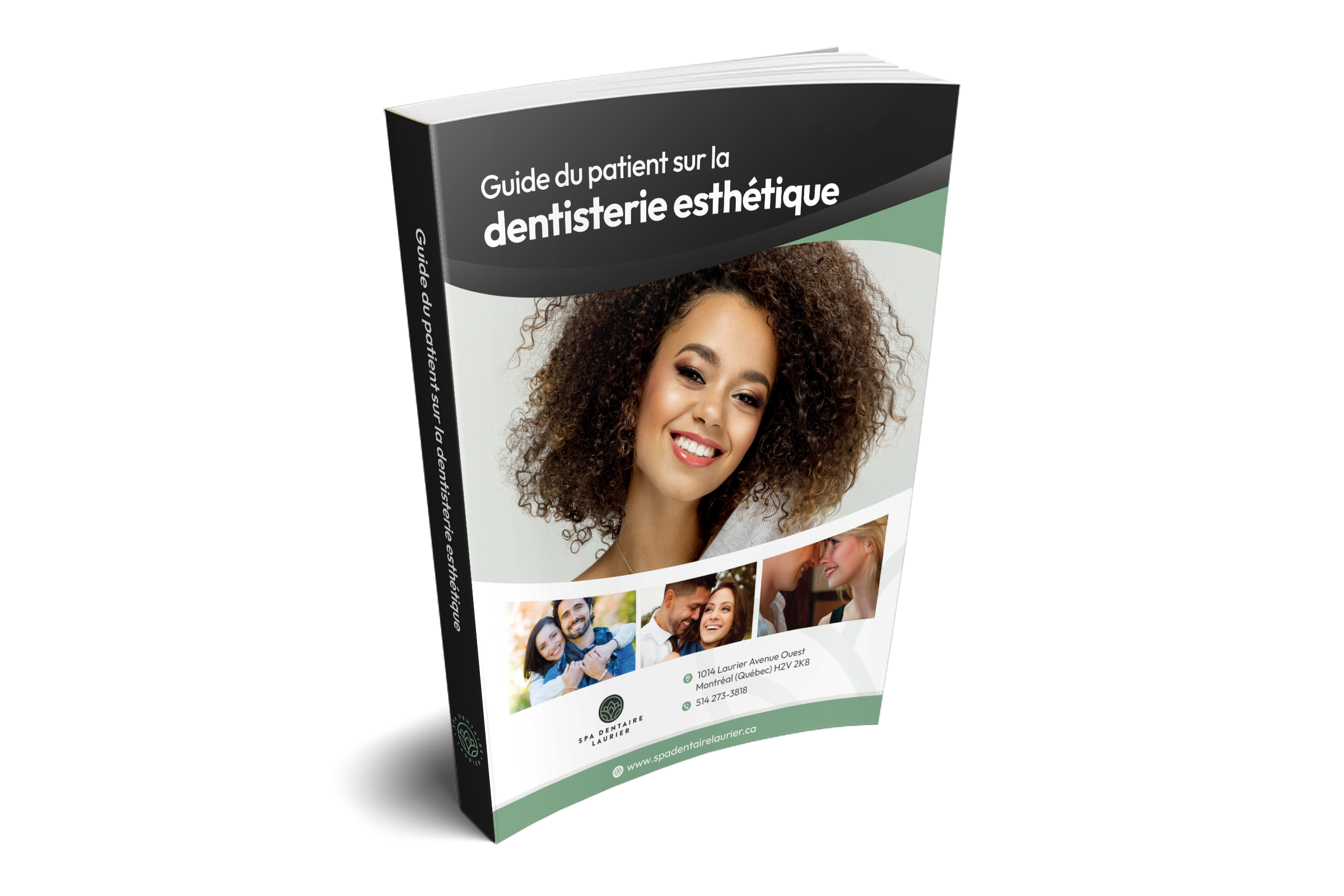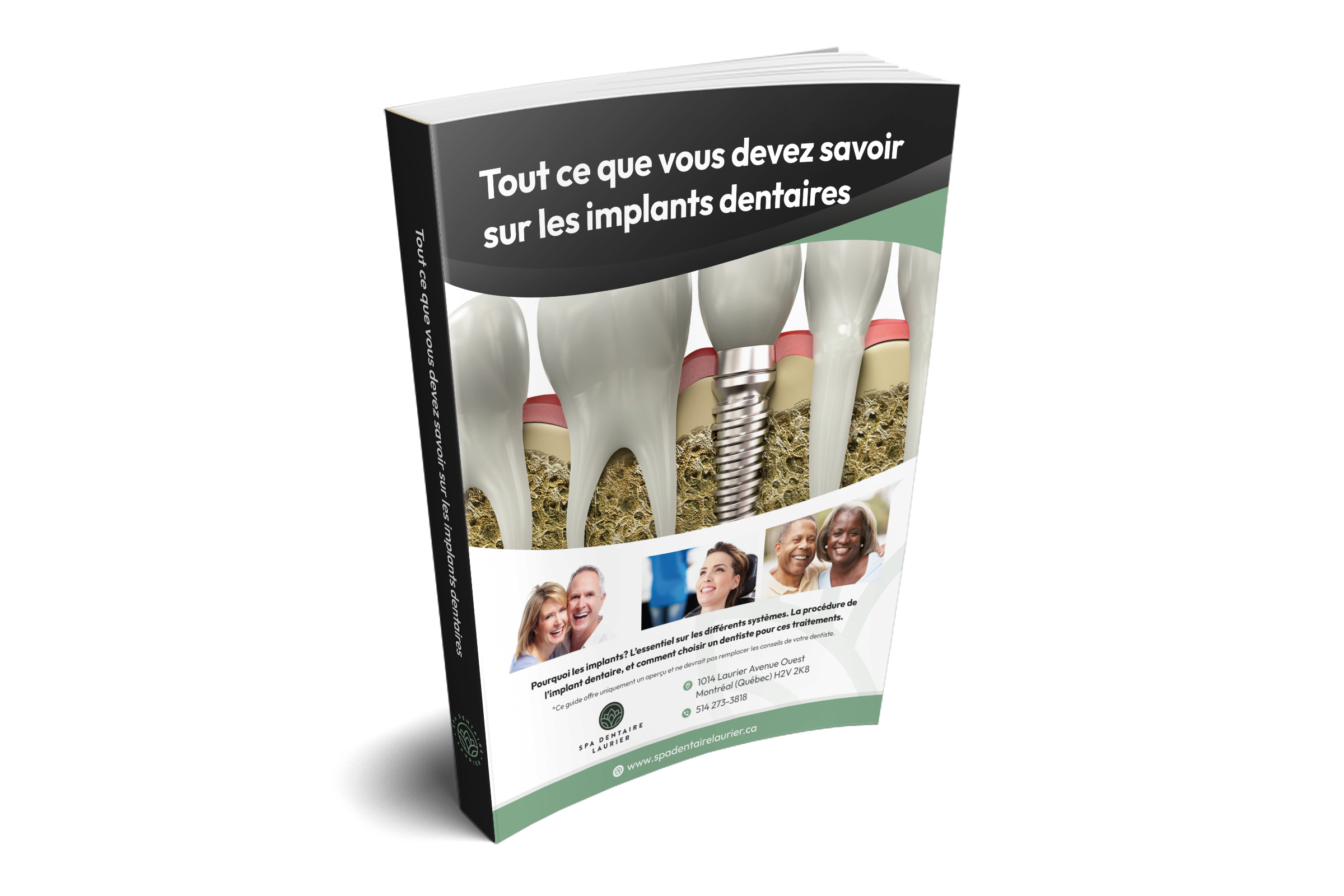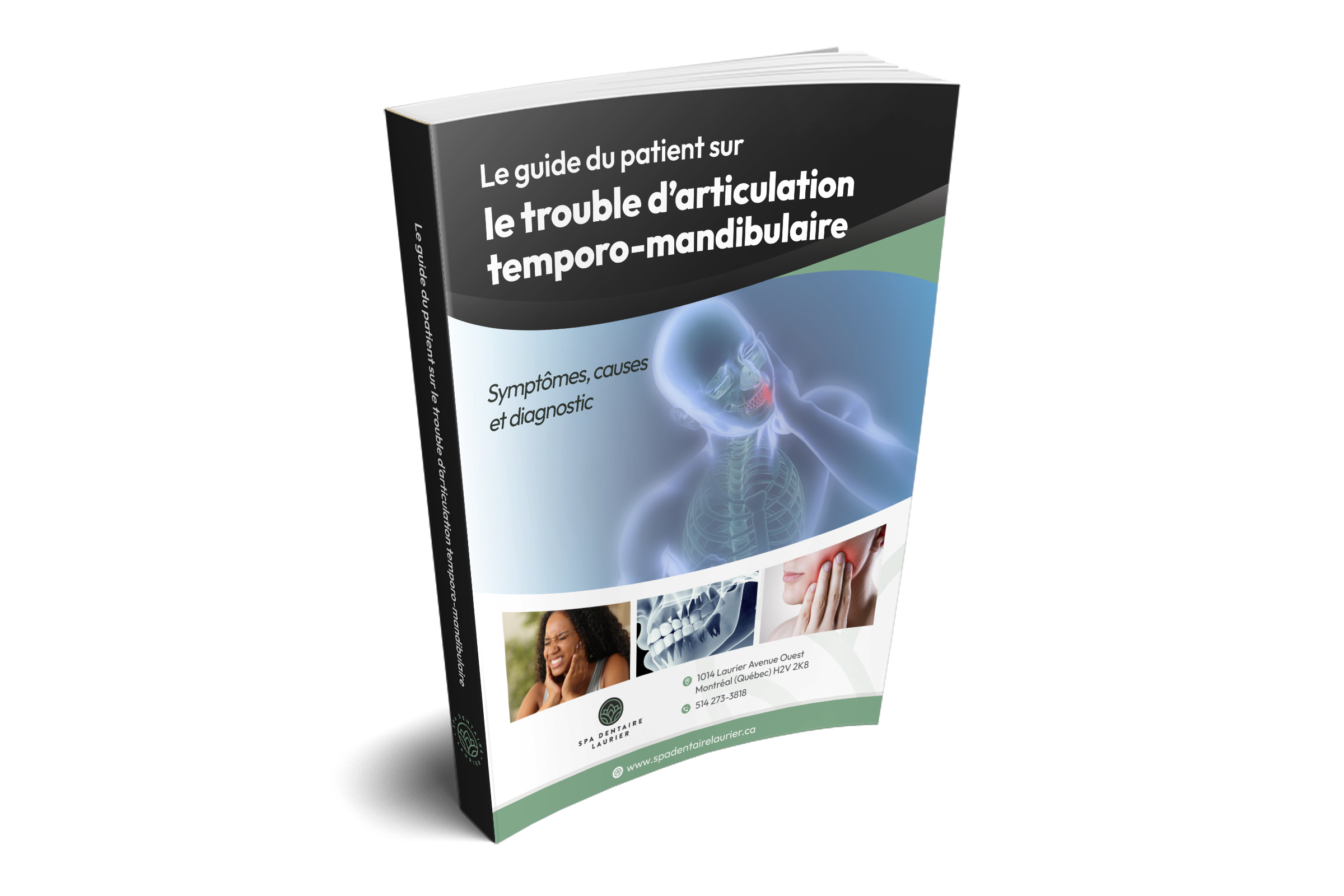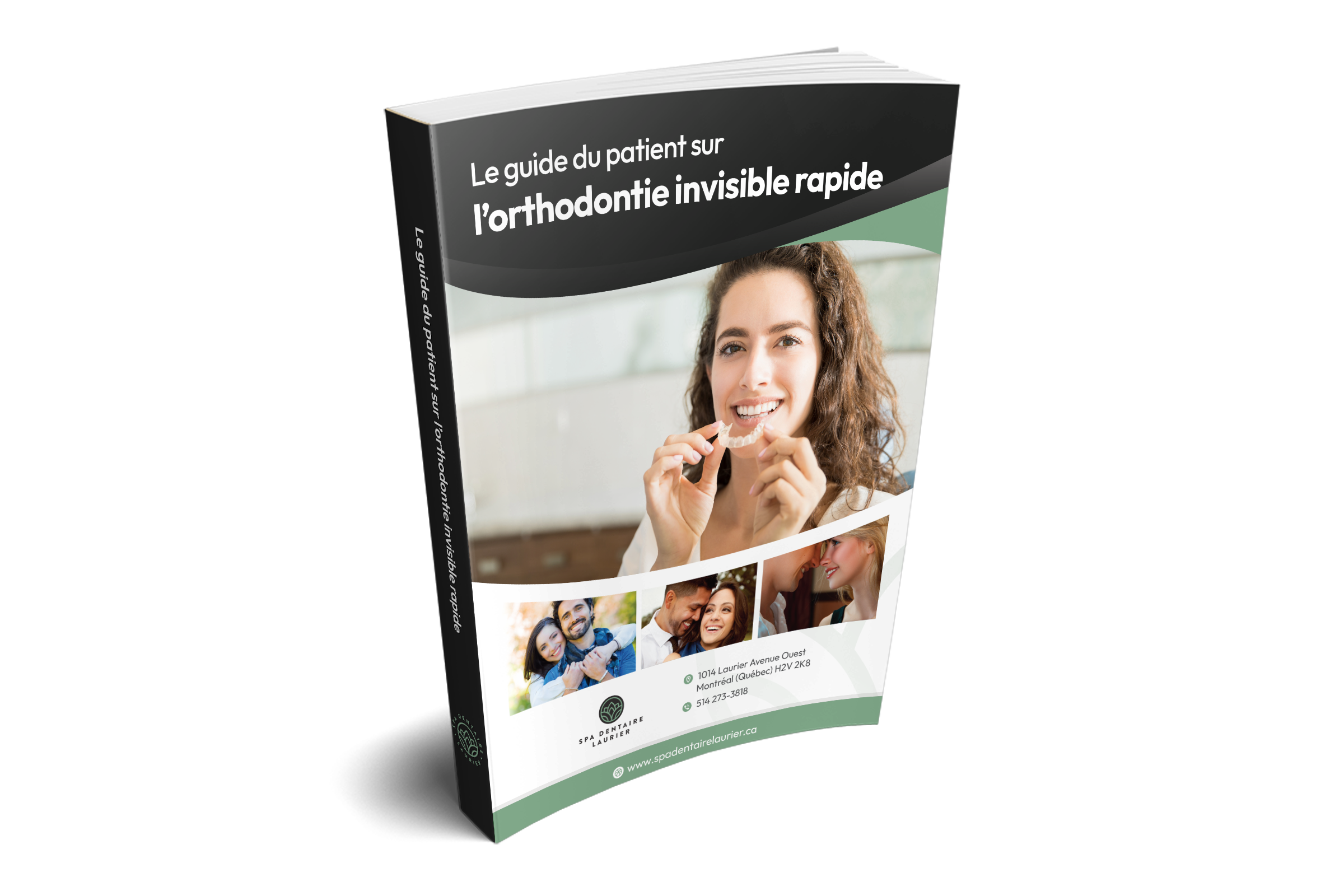Why do you grind your teeth at night (and what can you do about it)?
Do you often wake up with jaw pain or headaches? Perhaps you have a tendency to clench your teeth in your sleep without even realizing it. This phenomenon, known as bruxism, affects many people and can have consequences for your long-term oral health and even the aesthetics of your teeth. But don’t panic: by understanding the causes and adopting the right reflexes, you can considerably reduce this phenomenon.
Hello ! My name is Pierre Comeau, and I’ve been a dentist in the Outremont and Plateau Mont-Royal areas of Montreal for over 20 years. In this article, I’m going to explain in detail what bruxism is, what the most common causes are, and above all, what you can do about it. You’ll discover that stress isn’t the only culprit, and that other factors, such as sleep disorders or dental problems, can also play a role. I’ll also give you practical advice on how to soothe your jaw and get back to a peaceful sleep.
Important: The information presented in this article is for information purposes only and in no way replaces face-to-face medical advice. Before applying any of the proposed solutions, please consult me or your dentist for a precise diagnosis and treatment adapted to your situation.

The three main types of teeth grinding.
Why are you grinding your teeth?
You’re probably wondering why you have this reflex of clenching your teeth while you sleep? There are many causes of bruxism, and they can vary from one person to another. Here are the factors involved:
- Stress: This is often the first factor mentioned. Tension built up during the day can be released during sleep in the form of involuntary muscle contractions.
- Sleep disorders: Sleep apnea, for example, can cause repeated micro-awakenings during the night, during which you may unconsciously clench your teeth.
- Medication: Certain medications, such as antidepressants, can have side effects that encourage bruxism.
- Dental abnormalities: A bad bite, missing teeth or ill-fitting fillings can unbalance the forces exerted on your teeth, leading to bruxism.
- Genetic factors: There seems to be a genetic predisposition to bruxism. If your parents grinded their teeth, you are more likely to develop this disorder.
- Temporomandibular joint (TMJ) disorders: These can lead to jaw pain and dysfunction, which in turn can lead to bruxism.
- Gastroesophageal reflux disease (GERD ): Acid reflux during the night can trigger reflex muscle contractions, including teeth clenching.
- Certain nutritional deficiencies: Magnesium or vitamin D deficiencies may be associated with bruxism.
Well, well, well! Surprising, isn’t it? You see, the causes of teeth grinding, or bruxism, are many and varied. It’s a complex phenomenon, linked to a variety of factors.
The consequences of bruxism: beyond the pain
Bruxism can have serious consequences for your oral health if left untreated:
- Enamel wear: Your teeth may wear prematurely, becoming sensitive and more brittle.
- Tooth fractures: In severe cases, bruxism can lead to tooth fractures.
- Muscle and joint pain: Jaw muscles and temporomandibular joints can become painful and restricted in their movement.
- Headaches and migraines:Bruxism can cause muscle tension in the face and neck, leading to headaches and migraines.
Please remember that the solutions I offer here are for information purposes only. A thorough examination with a dentist will provide an accurate diagnosis of your situation. It will also help determine the appropriate dental solutions.
1. Identify and manage triggers:
- Stress: Practice relaxation techniques such as meditation, yoga or deep breathing.
- Sleep disorders: Consult a sleep specialist for diagnosis and appropriate treatment.
- Medication: Talk to your doctor about changing your treatment if you think your medication is the cause of your bruxism.
- Dental problems: See your dentist regularly to check the condition of your teeth and joints.
2. Using an occlusal splint:
- This customized dental protection helps protect your teeth from wear and tear and reduces muscle tension.
3. Adopt a healthy lifestyle:
- Diet: Avoid hard, sticky foods.
- Sleeping position: Sleep on your side to reduce pressure on your jaw.
- Hydration : Drink enough water to keep your oral mucosa hydrated.
4. Explore complementary therapies:
In fact, there are many ways to relax and unwind. It’s a matter of discovering the one that’s right for you and putting it into practice regularly, if not daily. Here are just a few that are popular with dental clinic customers:
- Progressive muscle relaxation: A simple technique for releasing muscular tension. Think stretching and massage!
- Hypnosis: Can be effective for managing stress and unconscious habits.
- Acupuncture : Some studies suggest that acupuncture may help reduce bruxism-related pain.
- Yoga : a recognized approach to anxiety reduction and physical and mental well-being.
- The breathing method known as Cardiac Coherence.
- The breathing exercises of the Buteyko method.
